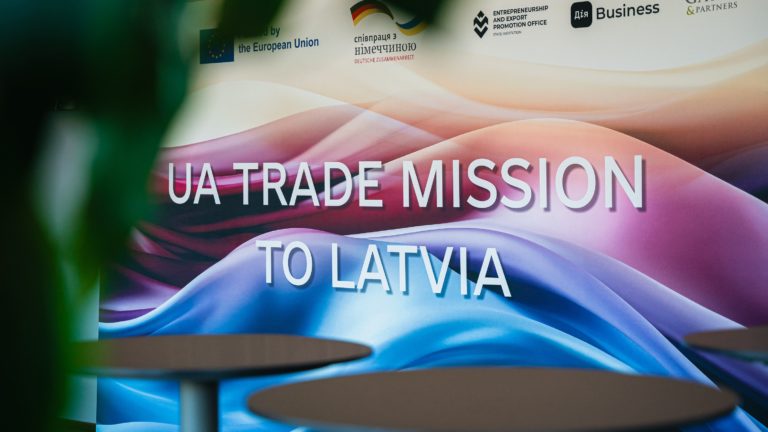We are happy to announce the opening of our Brazil office in March 2023. It is our tenth office in the Gateway&Partners family, but first one to be located outside of Europe.
It is our mission to help companies grow internationally. Whether it’s through individual B2B export partner search and matchmaking events, new supplier search and international exhibition support, or market research, we are a trusted partner with 18 years of experience.
Our main activities cover the European markets, however, we see growing interest in the overseas markets, therefore it is important to build a strong local presence to ensure the market knowledge and quality of our applied methodology.
We are pleased to welcome Gustavo Lima and Jessika Heimann von Sohsten as our franchise partners in Brazil. Both of them started as export project consultants in Riga, Latvia, and spent months learning how Gatway&Partners works. Eventually, falling in love with the consulting business and the mission to help companies expanding in the international markets has led to the beginning of this great partnership.
Key Facts about Brazil
- 4 million registered entrepreneurs according to data from the Brazilian Federal Revenue Service.
- 212 million inhabitants
- diverse range of natural resources, and industries
- second-largest trading partner after China, with total trade amounting to over 70 billion euros.
Successful Trade Relationship History
Over time, Brazil and Europe have expanded their trade relationships to include a wide range of products, from manufactured goods and commodities to services and technology. Today, Europe is one of Brazil’s most important trading partners, with significant investments flowing in both directions. In 2020, the EU was Brazil’s second-largest trading partner after China, with total trade amounting to over 70 billion euros.
Brazil is also a significant market for European exports, particularly in areas such as machinery, vehicles, chemicals, and pharmaceuticals. The two regions continue to work towards further strengthening their trade relationships through initiatives such as the EU-Mercosur trade agreement, which is currently under negotiation.
Opportunities for European companies
If you’re a European business looking to expand your horizons, Brazil could be the perfect place to start! With over 212 million people, Brazil has a huge market awaiting new and exciting products. And with its diverse range of natural resources and industries, there are plenty of opportunities to find something that fits your brand. Plus, Brazil’s improving infrastructure and economy make it easier than ever to do business there.
And let’s not forget about the fantastic culture and lifestyle – who wouldn’t want to experience all the beautiful things Brazil has to offer? By exporting from Brazil, you could open up a whole new world of possibilities for your business.
Opportunities for Brazilian companies
Europe represents an exciting opportunity for Brazilian businesses looking to expand into new markets. With its diverse range of industries, cultures, and consumer preferences, Europe provides a wealth of potential markets to tap into. And with the size and sophistication of the European economy, there is no shortage of potential customers and partners to connect with.
Furthermore, the unique and high-quality products and services offered by Brazilian businesses will stand out in the European market, making it an ideal place to establish a strong brand presence. By expanding into Europe, Brazilian businesses can open up new revenue streams, gain valuable market insights, and establish themselves as global players in their respective industries. So why not take the leap and explore all that Europe has to offer?
Main Imports
- Petroleum and petroleum products: Brazil is a net importer of petroleum and relies heavily on imports to meet its energy needs.
- Electronic equipment: Brazil imports a significant amount of electronic equipment, including computers, telecommunications equipment, and semiconductors.
- Vehicles and vehicle parts: Brazil imports a large number of cars, trucks, and other vehicles, as well as parts and accessories for these vehicles.
- Pharmaceuticals: Brazil imports a significant amount of pharmaceutical products, including prescription drugs, vaccines, and medical devices.
- Chemicals: Brazil imports a variety of chemicals, including fertilisers, pesticides, and industrial chemicals.
- Iron and steel: Brazil imports a significant amount of iron and steel products, which are used in a variety of industries.
- Plastics: Brazil imports a large amount of plastic products, including raw materials and finished goods.
Main Exports
- Soybeans: Brazil is one of the world’s largest producers and exporters of soybeans, which are primarily used for animal feed and soybean oil production.
- Crude oil: Brazil is a significant exporter of crude oil, which is produced offshore in its deep-water oil fields.
- Iron ore: Brazil is a major exporter of iron ore, which is used in steel production.
- Refined petroleum: Brazil also exports refined petroleum products, including gasoline, diesel, and other fuels.
- Poultry: Brazil is a significant exporter of chicken and other poultry products, which are consumed around the world.
- Beef: Brazil is also a major exporter of beef, including fresh and frozen meat products.
- Sugar: Brazil is one of the world’s largest producers and exporters of sugar, which is used in food and beverage production.
- Corn: Brazil exports a significant amount of corn, which is primarily used for animal feed and ethanol production.
- Chemical products: Brazil exports a variety of chemical products, including fertilisers, pharmaceuticals, and industrial chemicals.
- Coffee: Brazil is one of the world’s largest producers and exporters of coffee, which is a major source of income for the country’s agricultural sector.
Traditional Economies
- Agriculture: Agriculture is a major industry in Brazil, accounting for approximately 5% of the country’s GDP. Brazil is a significant producer and exporter of soybeans, coffee, sugar, beef, and other agricultural products.
- Manufacturing: Manufacturing is another important industry in Brazil, accounting for approximately 25% of the country’s GDP. Key sectors include automobile manufacturing, textiles, food processing, and chemicals.
- Mining: Brazil is rich in natural resources, and mining is an important industry, accounting for approximately 4% of the country’s GDP. Key resources include iron ore, gold, copper, and other minerals.
- Services: Services are the largest sector of the Brazilian economy, accounting for approximately 65% of the country’s GDP. Key sub-sectors include finance, real estate, transportation, and telecommunications.
- Oil and Gas: The oil and gas industry is an important sector of the Brazilian economy, accounting for approximately 10% of the country’s GDP. Brazil is one of the world’s largest producers of oil and gas, with significant offshore reserves.
Emerging Industries
- Renewable energy: Brazil has abundant natural resources for renewable energy, such as hydropower, wind, and solar. The country is already a leader in renewable energy production and has set ambitious targets for increasing the share of renewables in its energy mix.
- Agribusiness: Brazil is a major agricultural producer and exporter, and agribusiness is one of the fastest-growing industries in the country. The sector includes production of crops, livestock, and forestry products, as well as food processing and distribution.
- Healthtech: With a large and ageing population, Brazil has a growing demand for healthcare services and products. Healthtech startups are emerging in the country, offering innovative solutions for telemedicine, health data management, and digital health services.
- TechAgro companies in Brazil are developing innovative solutions for precision agriculture, crop monitoring, and farm management, among other areas. Using drones, sensors, and other technologies allows farmers to collect more data and make more informed decisions about planting, fertilising, and harvesting their crops.
- Fintech: Brazil has a large unbanked population, and fintech startups are offering new financial services to meet the needs of this market. These startups are developing innovative payment systems, digital banking services, and peer-to-peer lending platforms.


